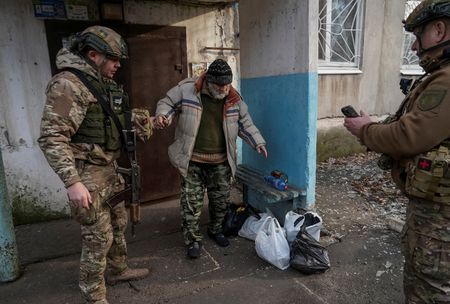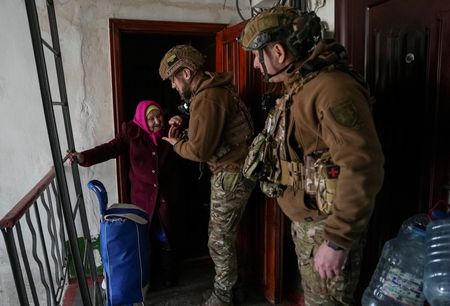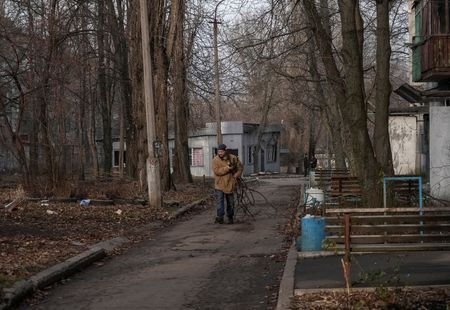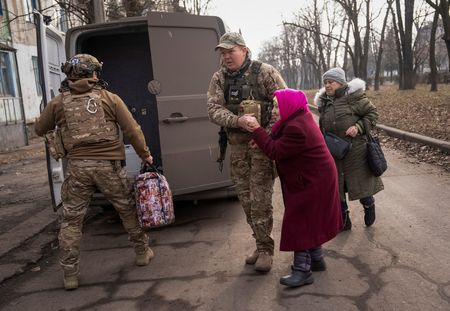By Inna Varenytsia
POKROVSK, Ukraine (Reuters) – When the elderly Ukrainian couple refused Hennadii Yudin’s pleas for them to evacuate their war-torn eastern city of Pokrovsk, the sturdy police officer tried another tactic: calling their grandchildren.
“Come on, tell them they need to leave,” he implored them over a mobile video call. “We’re standing here – we came here just for them.”
A short time later, Leonid and Yelena were smiling inside an armoured van as they sped away from Pokrovsk, a logistics hub currently under threat by advancing Russian forces.
The city is an apocalyptic landscape of shattered buildings and streets littered with debris from Russian artillery, air and drone strikes as Moscow’s war nears its three-year mark.
Yet local authorities like Yudin’s team of police rescuers, dubbed the “White Angel”, still face difficulties in persuading residents to flee to safer territory.
Some 7,000 remain out of a pre-war population of 60,000, regional officials said last week, despite cuts to electricity, water and heating.
“Every time you enter, it looks worse than before,” said Yudin, clad in camouflage and body armour and clasping a shotgun.
His team responds to appeals from both residents and their family members. When they arrive, however, they often face pushback.
“I’m begging you, please – we’re not going to evacuate anywhere,” said one woman from inside her apartment, who said she did not want to leave her cat behind.
Reluctant residents also typically cite their age, poor health or the uncertainty of decamping to an unfamiliar new area as reasons for staying put.
Russian forces are just several kilometers from the city centre, and Ukrainian commanders have reported unrelenting infantry assaults around it.
The city’s capture would further compromise supply lines to Ukrainian forces in the east and enable a grinding Russian march westward into the neighbouring Dnipropetrovsk region.
Pensioner Halyna called Yudin’s team to evacuate her 90-year-old aunt, a World War Two survivor. The woman trundled down the cracked stairwell of her apartment building wrapped in a thick overcoat and bright pink headscarf.
“We thought things would take a turn for the better, but they’re not moving,” said Halyna. “What else should I do with her?”
(Writing by Dan Peleschuk; Editing by Angus MacSwan)














